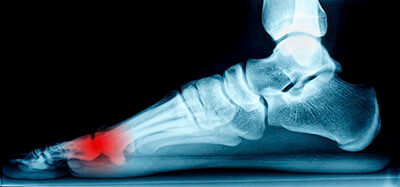Connect With Us
Mortons Neuroma

Morton's Neuroma Treatment in Dallas & Carrollton, TX
If you find yourself feeling as though you are walking on a pebble in your shoe, only to check and find no pebble there, then you may have Morton’s neuroma. Morton’s neuroma is a foot condition in which the nerve tissue between the toes thickens, causing symptoms such as pain, tingling, burning, numbness, and the feeling of something being stuck in the ball of the foot. The symptoms may come on gradually, go away temporarily, and then return, progressively worsening over time.
The nerve tissue thickening associated with Morton’s neuroma is caused by compression or irritation of the nerve. This can occur due to wearing shoes that are too too tight or narrow in the toe area, wearing high heels which put excess pressure on the balls of the feet and toes, running, or playing court sports like tennis. Having certain foot conditions, such as bunions, hammertoes, or flat feet, can predispose you to developing Morton’s neuroma.
A podiatrist can diagnose Morton’s neuroma by taking a medical history and completing a physical examination. Sometimes imaging studies are used to confirm the diagnosis. Treatment is typically conservative and may include padding the foot, wearing orthotics, modifying footwear and activities, resting and icing the affected foot, taking anti-inflammatory medications, or injecting medicine directly into the foot. In severe or chronic cases, surgery may be recommended.
If you are experiencing the symptoms of Morton’s neuroma, please seek the care of a podiatrist.
